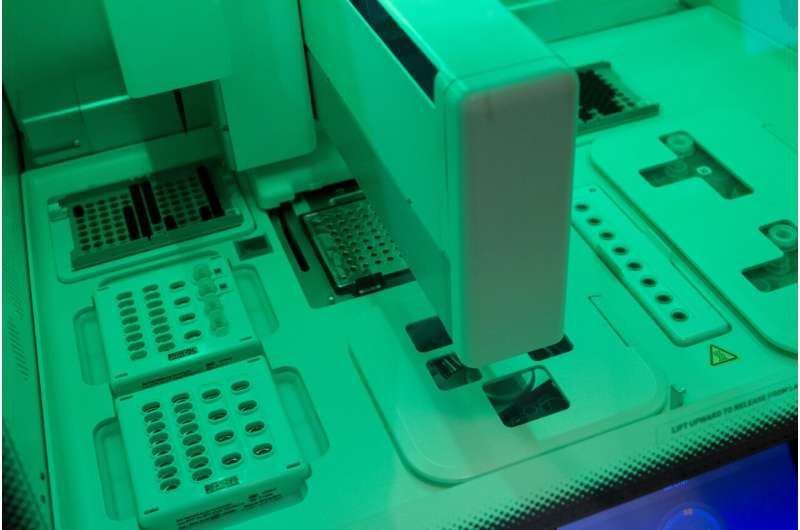This article has been reviewed according to Science X's editorial process and policies. Editors have highlighted the following attributes while ensuring the content's credibility:
fact-checked
peer-reviewed publication
trusted source
proofread
Study finds that experts support DNA sequencing in newborns

Babies born in U.S. hospitals currently undergo routine newborn screening, a laboratory test to identify the risk of up to 60 treatable conditions. But hundreds of genetic disorders, including a growing number of devastating childhood diseases, now have targeted treatments, including gene and cell therapies, that can offer permanent cures. Despite these advances, the addition of genomic sequencing to newborn screening programs has remained controversial.
Findings from a new study led by researchers at Mass General Brigham suggest that rare disease experts are now in favor of more expansive newborn testing. In a study published today (May 8) in JAMA Network Open, 88% of rare disease experts agreed that DNA sequencing to screen for treatable childhood disorders should be made available to all newborns.
The study further identified 432 gene-disease pairs that are not currently screened for, but that were recommended for newborn screening by more than 50% of the experts. Among the genes that most experts recommended for newborn screening were those associated with a lethal liver and brain disorder, the severe bleeding disorders known as hemophilia A and B, and an increased risk for retinoblastoma, a rare and fatal eye tumor in young children.
"Early identification of infants who are at risk for genetic disorders can be lifesaving and screening has the potential to improve health care disparities for affected children," said lead author Nina Gold, MD, a medical geneticist at Massachusetts General Hospital for Children, a member of Mass General Brigham. "Medical experts are now calling for more conditions to be included in newborn screening that can only be identified through DNA sequencing. In our survey, they reached a striking consensus about the highest priority conditions to include."
The survey study was conducted between February and September of 2022, and the research team received responses from 238 experts. In addition to soliciting expert consensus, the authors consolidated recommendations for more than 600 genetic conditions from rare disease sub-specialists in order to offer clinical guidance when DNA screening was positive.
In many cases in which DNA sequencing identifies a child at risk, a blood test or imaging study can then determine whether the disease condition is already underway, enabling early treatment. In other cases, the child will be entirely healthy despite the positive DNA screen and can be followed for the appearance of symptoms and signs in the future. The researchers note that future studies will be needed to determine whether newborn sequencing is cost-effective and positively contributes to short- and long-term outcomes.
Over the past seven years, randomized controlled trials in the NIH/NCATS-funded BabySeq Project, conducted by researchers at Mass General Brigham and Boston Children's Hospital, have demonstrated that comprehensive DNA sequencing of newborns can identify life-threatening genetic risks, many of which are treatable, in some babies shortly after birth.
Gene therapy for treating some of these conditions, including hemophilia and Duchenne muscular dystrophy, are currently in development or entering clinical trials. Mass General Brigham recently launched its Gene and Cell Therapy Institute to help translate scientific discoveries into first-in-human clinical trials and, ultimately, life-changing treatments for patients.
"It has been a longstanding dream to someday offer DNA sequencing to all newborns in order to detect their risk of disease," said senior author Robert C. Green, MD, MPH, a physician-scientist at Brigham and Women's Hospital (a founding member of Mass General Brigham), professor of genetics at Harvard Medical School, and lead investigator of the BabySeq Project. "Our empirical data from BabySeq have demonstrated that nearly 10% of infants carry actionable genetic variants. With the recent explosion of gene and cell therapies, some of which can fully prevent or cure a condition before symptoms appear, it is urgent that we move forward to provide this option to families who are interested."
More information: Perspectives of Rare Disease Experts on Newborn Genome Sequencing, JAMA Network Open (2023). DOI: 10.1001/jamanetworkopen.2023.12231



















